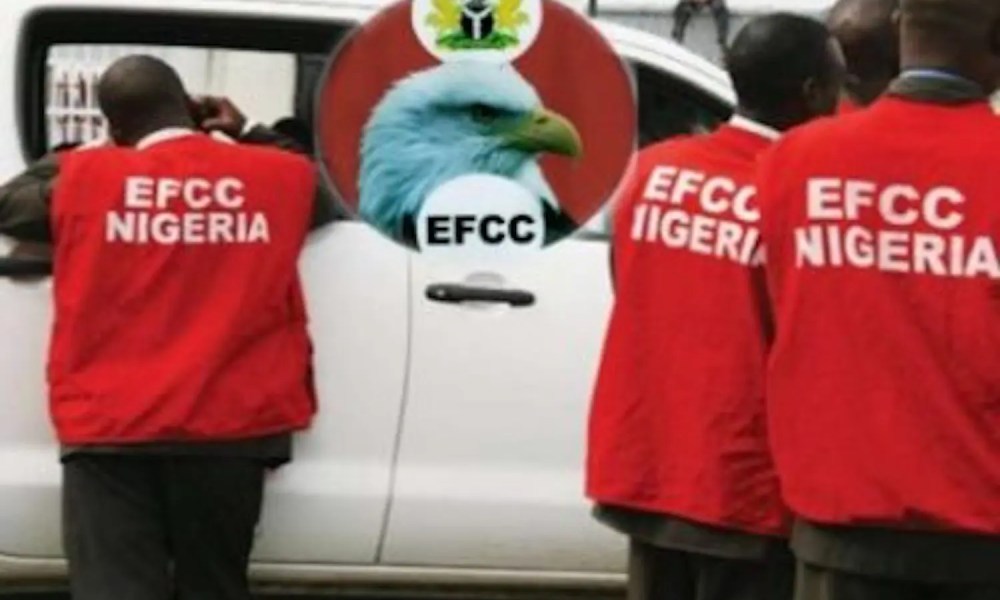🌿 Ruzu Non-Alcoholic Herbal Bitters
Ruzu Non-Alcoholic Herbal Bitters is a natural health supplement specially formulated to:
- ✅ Promote general wellness
- ✅ Detoxify the body
- ✅ Support the treatment of various ailments
Made from a powerful blend of 100% organic and medicinal herbs, Ruzu is completely alcohol-free, making it ideal for:
- 👪 All age groups
- 🌱 Health-conscious individuals
- 🌿 Anyone seeking non-alcoholic herbal remedies
Whether you're looking to boost your vitality, cleanse your system, or support healing the natural way, Ruzu Bitters offers a trusted herbal solution.
Nigeria’s Economic and Financial Crimes Commission (EFCC) is ramping up its fight against the misuse of the national currency, the Naira.
This is against the backdrop of a declaration of a 5% reward for whistleblowers who provide information leading to the successful prosecution of Naira abusers.
Dele Oyewale, spokesman of the EFCC, disclosed this as guest on the EFCC 97.3FM Abuja talk show, on Monday.
Oyewale emphasized the commission’s commitment to enforcing the law and protecting the economy from the negative impacts of naira abuse.
He explained that the 5% reward was aimed at encouraging whistleblowers to come forward with information that would aid in the prosecution of offenders.
“There’s a reward if you report anyone spraying the Naira. That is whistleblowing. The whistleblowing act offers 5% reward of whatever amount that is involved to whoever offers credible information that can stand the rigour of prosecution and not derived from malice and mischief,” Oyewale declared.
Read Also: FG can’t impose minimum wage on states, LGs, private sector —Labour Minister Onyejeocha
This move comes amidst the agency’s ongoing efforts to curb practices like spraying banknotes at celebrations, a flamboyant display considered disrespectful to the currency.
Oyewale further emphasized the agency’s commitment to enforcing the law and protecting the Nigerian economy from the negative consequences of Naira abuse.
The announcement highlights several key points:
• Deterrence Through Rewards: The 5% reward serves as a financial incentive for citizens to report Naira abusers. This strategy aims to empower Nigerians and encourage them to participate in safeguarding the integrity of their currency.
• Focus on Prosecution: The EFCC underlines its commitment to pursuing legal action against offenders. Oyewale’s statement regarding “credible information that can stand the rigour of prosecution” indicates the agency’s intent to build strong cases for conviction.
• Early Signs of Progress: The EFCC claims to have secured nearly 50 convictions since establishing a task force specifically dedicated to tackling Naira abuse and dollarization. This suggests the agency has already begun making headway in its campaign.
The move has sparked discussions around the effectiveness of whistleblower programs and the cultural significance attached to money spraying in Nigeria. While some view the rewards as a positive step towards curbing the misuse of Naira, others might question the potential for misuse of the program due to malicious reports.
The EFCC’s efforts to combat Naira abuse will likely be monitored closely in the coming months. The success of this initiative will depend on the agency’s ability to effectively utilize whistleblowers, secure convictions, and foster a cultural shift towards respecting the Naira.
If you like what we do, and are ready to uphold solutions journalism, kindly donate to the Ripples Nigeria cause.
















